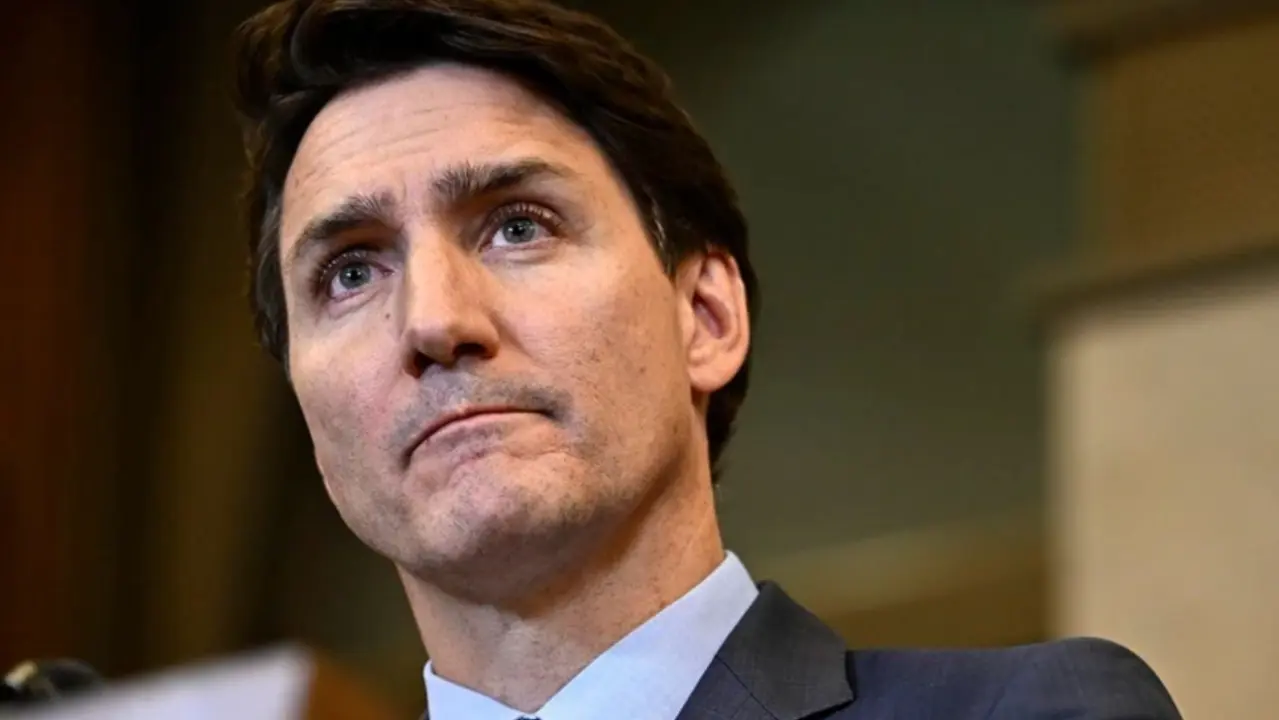Updated 17 October 2024 at 00:36 IST
Trudeau's Epic Fail, Says No Hard Proof Against India Over Baseless Charges
“We only had intelligence inputs, no hard evidentiary proof”, Trudeau said while testifying before the foreign interference inquiry.
- World News
- 5 min read

New Delhi: In a big embarrassment for both himself and the Canadian government, Justin Trudeau admitted that his accusations against the Indian government in connection to the killing of Hardeep Singh Nijjar, a wanted terrorist in India, were based solely on intelligence and lacked "hard evidentiary proof." While testifying before the foreign interference inquiry, Trudeau said we (Canada) only had intelligence inputs that they shared with India.
However, Trudeau had earlier this week claimed that India's envoy to Canada was a “person of interest” triggering a diplomatic crisis that eventually led to India recalling its ambassador from Ottawa and expelling six top Canadian envoys from New Delhi.
Trudeau's Damp Squib During Enquiry | His Full Statement
“Canada asked India to cooperate. Their (India) ask was for proof. We asked for Indian security agencies to investigate further and cooperate with us. Because at that point what we (Canada) had was intelligence. I brought this up with Modi at the end of the G20 and I shared that we knew India was involved. He brought up that many people in Canada speak against the Indian government, and he wanted to see these people arrested,” the Canadian Prime Minister said in an epic fail from his earlier stand.
Trudeau added that when he returned to Canada from India after the G20 Summit, "it was clear that the Indian government's approach was to criticise us and the integrity of our democracy".
Advertisement
“Over the course of summer I was apprised by intelligence services that govt was involved in the killing of Nijjar, there was not an obvious immediate international nexus... In August, intelligence from Canada and The Five Eyes made it clear that india was involved...agents from India were involved on Canadian soil and told them we have real concerns that your security agencies are involved. India's response to our investigation was to double down on attacks against our government...We told India it is not hard evidence but it is just intelligence at that point...India undermined our government and governance”.
"Canadians who are opponents of the Modi govt, their information was passed to the Indian govt at the highest level and then information directed through criminal organisations like the Lawrence Bishnoi gang resulted in violence against Canadians on the ground. We wanted to question Indian diplomats but they did not wave their diplomatic immunity which is why we had to ask them to leave"
Advertisement
What Trudeau Had Lied Earlier?
Issuing a statement earlier, the Prime Minister said, “The evidence brought to light by the Royal Canadian Mounted Police (RCMP) cannot be ignored. It leads to one conclusion: it is necessary to disrupt the criminal activities that continue to pose a threat to public safety in Canada. That is why we acted. Because we will always – first and foremost – stand for the right of Canadians to feel safe and secure in their own country.”
India-Canada Standoff
Relations between India and Canada are at a low point as the countries expelled each other's top diplomats over an ongoing dispute about the killing of a Sikh activist in Canada.
Canada said it had identified India’s top diplomat in the country as a person of interest in an assassination plot and expelled him and five other diplomats Monday. India has rejected the accusations as absurd, and its foreign ministry said it was expelling Canada’s acting high commissioner and five other diplomats in response.
It’s the latest in an escalating dispute over the June 2023 killing of Sikh activist Hardeep Singh Nijjar.
What is The Dispute About?
Nijjar was shot dead in his pickup truck in June 2023 after he left the Sikh temple he led in the city of Surrey, British Columbia. Canadian Prime Minister Justin Trudeau said in September 2023 there were credible allegations that India’s government had links to the killing. India denied the allegations at the time but said Nijjar was involved in “terrorism.”
How Did India-Canada Relations Get to This Point?
Canada expelled an Indian diplomat over the dispute last year, and in response, India expelled a Canadian diplomat and froze consular services for Canadians for nearly two months.
Tensions boiled over again in May, when Canadian police said they had arrested three Indian nationals accused of involvement in Nijjar’s killing and were “investigating if there are any ties to the government of India.” India rejected the allegations, saying Canada had a “political compulsion” to blame India.
What Has Changed Now?
Now, Canada says that India's top diplomat in the country is a person of interest in the killing, and that police have uncovered evidence of an intensifying campaign against Canadian citizens by agents of the Indian government.
The Royal Canadian Mounted Police (RCMP) said it had found evidence of the involvement of Indian agents “in serious criminal activity in Canada," including links “to homicides and violent acts” and interference in Canada's democratic processes, among other things.
Meanwhile, Canada’s foreign minister, Mélanie Joly, tied the Indian officials to Nijjar's assassination and said Canada had gathered “ample, clear and concrete evidence which identified six individuals as persons of interest in the Nijjar case.”
In a statement Monday, India’s foreign ministry said that the Canadian government “has not shared a shred of evidence” with the Indian government, “despite many requests from our side.” The ministry also called the accusations part of “a deliberate strategy of smearing India for political gains.” Nijjar.
Published By : Surabhi Shaurya
Published On: 16 October 2024 at 21:52 IST
